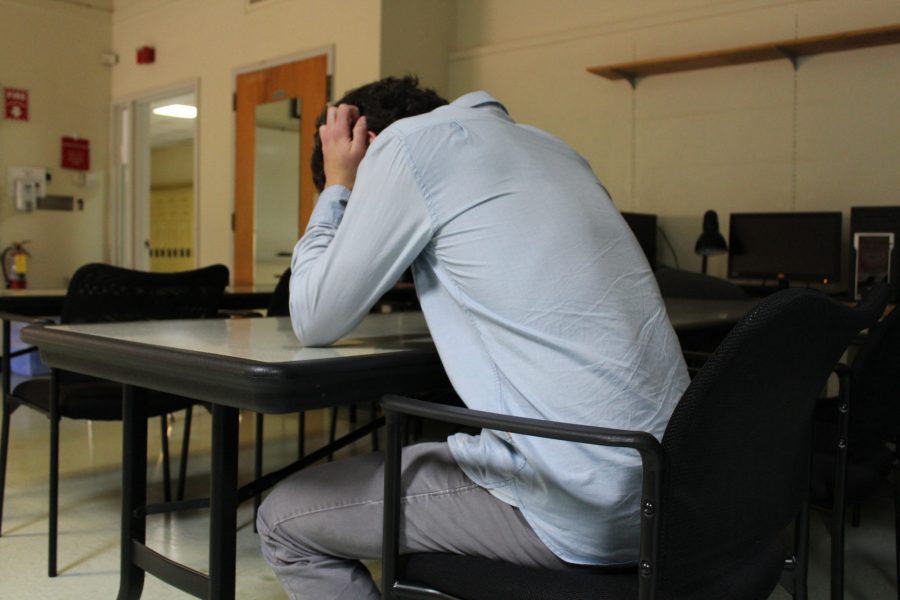Between tests, assignments, sports, clubs, jobs, and outside interests, life as a high school student can often feel out of control. So how does this stress affect us, and what do we do to deal with it? For the majority of students, procrastination is the answer and the problem.
We’ve all done it, hours of homework due tomorrow and yet we just can’t get ourselves started. The idea behind procrastination is simple; we put off the pain or inconvenience of work temporarily to have a few hours of relaxation. Yet, the distracting and time consuming activities we choose cause many of us to stay up later to finish our work.
Students procrastinate in many different ways, some, like Simon Mendenhall, exercise to avoid and relieve stress. Exercise increases levels of endorphins (feel-good neurotransmitters) which can decrease stress, and improve mood. Others watch T.V., play video games, or hang out with friends.
“For me stress equals procrastination, because I’m too stressed to do anything.” said Oscar Felcan, a BHS junior.
One issue that develops with high stress levels is the lack of student ability to properly handle it, and student inability to cope with it. A survey by USA TODAY has shown that students are just as stressed and in some cases even more stressed than adults. Unchecked stress has even been proven to cause heart disease, obesity, high blood pressure, and diabetes, as well as sleep deprivation.
“Lots of homework, early mornings, and a restricted schedule are all ways school stresses me. It prevents me from sleeping healthily,” one student commented when asked about school induced stress.
Poorly managed stress also causes students to become angry, irritable, anxious, and overwhelmed, according to a survey done by The American Psychological Association on teens in the United States. It can cause students to often ignore those around them, or certain necessities like sleep just so that they can finish their homework. For Henry Sheeser, also a junior, anxiety over school work has been detrimental to life outside the classroom.
“Stress makes me irritable, and overly focused, which negatively affects relationships with the people around me like my parents. We often argue about homework, and the importance of doing it, even if it costs me sleep. I think it’s kind of ridiculous how often this argument occurs especially since I’m usually the one arguing to stay up and finish my homework, even though I don’t want to.” Sheeser said.
Ruby Smith, a junior, mentioned, that in order to get a healthy amount of sleep every night, she is forced to start homework as soon as she gets home from extracurriculars. This is true for many students, yet not all are able to focus for such an extended period of time.
Having the time and place and energy to get homework done is a real difficulty and a primary instigator of stress. Procrastination is not a good way to cope with stress. If the amount of homework we have to do is not going to change, what may be most important is learning new ways to cope with the stress.
Do you have an opinion the role of homework in our learning? Care to share it?
Write to us at [email protected]









